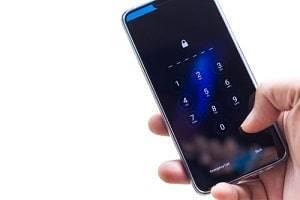
In today’s society, cell phones are commonplace when just 20 years ago, they were considered a luxury item. Now, cell phones have a plethora of uses other than just being for making phone calls. Think about what you use your cell phone every day. Many people use their smartphones to navigate from place to place, access the Internet, save photos and contacts, set calendars and schedules, and communicate with friends and family. All of that information is stored on your phone and can be viewed by mostly anyone who has access to the phone - even police. In recent years, cell phones have become more valuable as evidence for law enforcement officers investigating a crime. However, some police professionals have run into opposition when attempting to retrieve evidence from password-protected phones.
Recently, such an issue made its way to the New Jersey Supreme Court, where the court ruled that a search warrant can indeed require a defendant to reveal his or her passcode to unlock his or her phone for law enforcement officers to retrieve evidence. The court ruled 4-3 that no existing state or federal laws provided enough protections for a passcode. This decision came from a case involving a man who claimed it was unconstitutional to force him to provide his passcode to police during their investigation into the man’s alleged involvement with aiding another man charged with drug trafficking.
Many critics state that this decision vehemently undermines the Fifth Amendment to the United States Constitution, along with a person’s right to privacy for everything else stored on his or her cell phone. The Fifth Amendment states that a person has the right to remain silent and not to incriminate himself or herself. Another reason many were against this decision is that divulging your passcode to law enforcement then also gives them access to all of your personal data stored on your device, regardless of whether they have a right to view or access that information or not.
Even if you have been arrested and charged with a crime, you still have rights as a U.S. citizen against self-incrimination and protection of your personal data. If you have been served a search warrant or been asked by police for the passcode to your cell phone, you should immediately speak with a skilled Hartford, CT criminal defense lawyer. At the Woolf & Ross Law Firm, LLC, we understand the delicate balance of freedom and justice and we will do our best to preserve it. We offer free initial consultations; to schedule a meeting, call us today at 860-290-8690.
Sources:
https://www.governing.com/security/Search-Warrants-Can-Require-Defendants-to-Give-Phone-Passcode.html
https://www.vox.com/recode/2020/2/24/21133600/police-fbi-phone-search-protests-password-rights
 50 Founders Plaza
50 Founders Plaza

